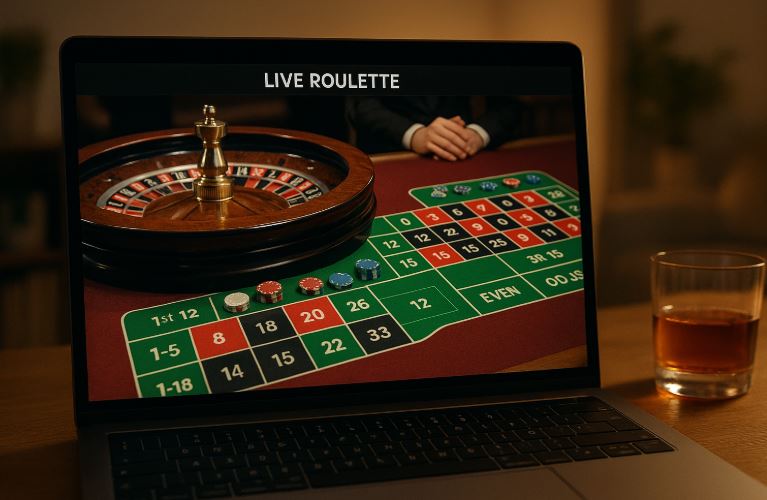Do You Pay Tax on Gambling Winnings? | Rules & Laws
He once placed a casual £10 bet on the Grand National. The payout? A jaw-dropping £35,000. His first thought was joy, the second was taxes. Does he need to declare it? Will HMRC come knocking? If you’ve ever experienced a lucky win, you’ve probably asked yourself: Do you pay tax on gambling winnings in the UK?
This blog post explores the complexities and realities of gambling taxation in the UK. With so much misinformation online, it’s important to understand what HMRC actually expects from punters. This guide will help clarify whether your lottery ticket, poker prize, or football bet might have tax implications.
Whether you’re a casual bettor or someone who makes a significant portion of their income through gambling, this guide will equip you with up-to-date insights into UK tax laws on gambling, backed by information from HMRC forums, tax experts, and financial advisors.
Let’s break it all down so you can bet with peace of mind.
What is Gambling Taxation in the UK?

Gambling taxation in the UK operates differently from many other countries. Since the reforms introduced in 2001 under then-Chancellor Gordon Brown, gambling winnings in the UK are completely tax-free. That’s not a loophole or a temporary ruling, it’s the law.
The tax burden is shifted from individuals to gambling operators, such as bookmakers, casinos, and online platforms. This decision was strategic and intended to simplify compliance, while also making the UK gambling market more attractive for players and businesses.
What Did the 2001 Reform Do?
Gordon Brown’s decision removed the General Betting Duty for individual bettors. This made all forms of gambling winnings, including horse racing, football bets, lotteries, poker tournaments, and online slots, completely tax-exempt for individuals.
This system is not only unique but highly beneficial to UK players. You can walk away with a million-pound jackpot and not pay a penny to HMRC. It also means there’s no need to report gambling winnings on a self-assessment tax return unless your gambling activities relate to a business structure.
The reform has stood firm for over two decades, and despite evolving gambling laws, this particular tax benefit remains unchanged.
Why Are Gambling Winnings Not Taxed in the UK?
The UK government’s rationale for not taxing gambling winnings is built around simplicity, fairness, and effective enforcement. Taxing individual players would be difficult to enforce consistently, especially when the gambling activity is casual and irregular.
Simplicity in Taxation
Taxing operators directly ensures that the revenue is predictable and easier to track. Since operators are licensed and regulated, HMRC can monitor their profits and collect duties without having to evaluate thousands of individual transactions from bettors.
Encouraging Regulated Gambling
By removing taxes on winnings, the government incentivises gamblers to use UK-licensed platforms rather than offshore sites. This supports safer gambling habits and protects consumers.
Who Actually Pays the Gambling Tax?
Bookmakers and gambling businesses pay the following taxes:
- General Betting Duty on bets placed with a bookmaker
- Remote Gaming Duty for online gambling operators
- Pool Betting Duty on certain games, like football pools
So while you might not see any tax deducted from your winnings, the operator has already fulfilled their legal obligation to HMRC.
What Types of Gambling Are Covered Under UK Tax-Free Status?

Gambling in the UK includes a wide variety of activities, and almost all of them are tax-free for individual winners. This applies whether you’re playing in-person or online, so long as the platform is licensed by the UK Gambling Commission.
Covered Activities
- Sports betting: Football, horse racing, boxing, and more
- Casino games: Blackjack, roulette, poker, slots, and table games
- Lottery wins: Including National Lottery, EuroMillions, and scratchcards
- Bingo and keno: Online or at physical venues
- Online gambling: Via apps, browser games, or e-sports platforms
Exempted Activities
There are no specific gambling activities where individual winnings are taxed. As long as it falls under the jurisdiction of the UKGC and is a legal form of betting, it is tax-free.
It’s crucial, however, to confirm whether the platform is licensed in the UK. Winnings from offshore or unregulated platforms may not enjoy the same protections and could raise questions from HMRC.
Do Professional Gamblers Pay Tax in the UK?
The line between casual and professional gambling can sometimes appear blurry. However, under UK tax law, even a professional gambler, someone who makes their living solely through betting, is not subject to tax on their winnings.
Gambling as a Trade
HMRC does not consider gambling a “trade” in most circumstances. That means no matter how regular, skilled, or profitable your gambling activities are, you won’t be treated like a business or taxed like one.
This is mainly due to the element of chance involved in gambling. Since outcomes are not guaranteed, HMRC views it as speculation, not a commercial enterprise.
Exceptions and Grey Areas
If your gambling is structured like a business, for instance, you have employees, run gambling syndicates or offer services for profit, then HMRC may investigate whether other taxes apply, such as Income Tax or Corporation Tax.
But generally, even professional poker players or sports bettors fall outside taxable activity so long as the income is solely from gambling wins.
How Does HMRC View Gambling Income?

The UK’s tax authority, HMRC, maintains a very clear stance on gambling income for individuals: it is not taxable. In the community forums and official documentation, HMRC repeatedly confirms that players do not owe tax on their winnings.
No Reporting Required
You are not required to declare gambling winnings on your Self-Assessment tax return. Even if you win large sums across multiple games or platforms, there’s no obligation to inform HMRC unless your activity involves money laundering concerns or business income.
Focus on Operators
HMRC focuses on collecting taxes from operators who are licensed under the Gambling Act 2005. These businesses are responsible for calculating and paying gambling duties.
This legal distinction is one of the most protective aspects of UK gambling law for individuals, ensuring that even jackpot winners keep every penny.
Do You Pay Tax on Gambling Winnings from Abroad?
UK residents who gamble abroad or on international platforms often worry about double taxation or conflicting laws. The good news is that in most cases, you still won’t owe tax on your winnings, even from overseas.
Residency Matters
If you are a UK tax resident, your global income may be subject to taxation. However, gambling is treated differently. Even if you win while abroad, UK law generally exempts such earnings from tax if they fall under personal gambling.
Be Aware of Local Laws
Some countries do impose taxes on gambling winnings. The US, for example, withholds a portion of gambling winnings for tax purposes, even for foreign nationals. In such cases, you may not pay UK tax but could lose a portion of your winnings to the foreign country’s tax system.
Always research local tax rules before gambling abroad or using international sites.
Are Gambling Losses Tax-Deductible in the UK?
The answer here is straightforward: no, gambling losses are not tax-deductible in the UK.
No Relief for Losses
Unlike in some jurisdictions where gambling losses can offset taxable winnings, the UK does not allow any deductions for gambling-related losses. This is consistent with the position that gambling is not taxable for individuals.
So, whether you win £100,000 or lose £20,000 over the course of a year, HMRC will not involve itself in your results unless they raise concerns under anti-money laundering or fraud frameworks.
Tax Implications for Online Gambling Platforms

Online gambling is now one of the most popular forms of gaming in the UK. From mobile apps to live dealer games, the digital space is booming—and so are its tax implications.
Remote Gaming Duty
Operators offering online gambling services to UK customers must pay Remote Gaming Duty (RGD). As of 2025, RGD is set at 21% of the operator’s profits.
This tax ensures that even though players do not pay tax on their winnings, the government still collects revenue from the gambling sector.
Regulated Market
Only operators with a UKGC license can legally offer gambling services in the UK. These platforms are required to implement responsible gaming protocols, anti-money laundering safeguards, and data protection.
For players, this means safety, transparency, and zero tax on winnings.
What If Gambling Becomes Your Main Source of Income?
If someone consistently earns a living from gambling, it might seem logical that they should be taxed. But under current UK law, even full-time gamblers are not considered to be conducting a taxable trade.
HMRC’s View
Even when gambling is your main income source, it does not meet the criteria for trading. This is because the outcome relies on chance, and the activity does not involve offering goods or services to others.
You may be living off gambling, but HMRC will not require you to pay income tax on your winnings.
Reporting May Still Be Required
While tax isn’t owed, HMRC may still require disclosures if the winnings are large or linked with unusual financial activity. This is more about regulatory oversight than taxation.
Is There a Difference Between Personal and Business Gambling?
There is a critical distinction between gambling personally and running a gambling-related business.
Business Gambling Defined
If someone sets up a gambling advice service, sells tips, or runs betting syndicates for profit, this activity may be taxable. In this case, the person is not just gambling for themselves but engaging in trade.
Self-Employed Gambling Ventures
Running gambling-related content platforms, offering paid subscriptions for betting tips, or managing gambling funds on behalf of others can bring you under HMRC’s self-employment rules.
Winnings alone are not taxed, but income from gambling-related services may be.
International Comparison: How Other Countries Tax Winnings?

To better understand the UK’s stance, here’s how other major countries handle gambling winnings.
Gambling Tax Comparison
| Country | Tax on Winnings | Policy Details |
| United Kingdom | No | Tax is paid by operators, not players |
| United States | Yes | Federal and state taxes on winnings apply |
| Germany | Sometimes | Certain games are taxed |
| Canada | No | Unless winnings are from business-like play |
| Australia | No | Gambling is considered recreational |
This comparison highlights the UK’s unique position. It supports player-friendly gambling without creating tax liabilities for winners.
Conclusion
In summary, UK residents do not pay tax on gambling winnings, no matter how large. Since 2001, the responsibility for tax payments has been shifted to licensed operators. Whether you’re a casual player, frequent punter, or even a full-time gambler, HMRC has no claim on your winnings.
As long as you’re gambling through regulated UK platforms, you’re protected by laws that are among the most liberal in the world. However, it’s always smart to stay updated and informed, especially if you engage in professional gambling or use international betting sites.
For now, enjoy your winnings. You’ve earned them, tax-free.
FAQs
Do UK gamblers need to declare their winnings to HMRC?
No, gambling winnings are not taxable and do not need to be declared to HMRC on your tax return.
Is gambling income considered a trade by HMRC?
HMRC generally does not consider gambling to be a trade because of the element of chance involved.
Are online gambling winnings taxed differently from in-person winnings?
No, whether online or in-person, gambling winnings are tax-free for individual players.
What happens if a UK resident wins money from a US casino?
US casinos may withhold tax at the time of payout. However, you won’t owe any UK tax on those winnings.
Can gambling losses reduce tax liability in the UK?
No, gambling losses are not tax-deductible under UK law.
Do lottery and scratchcard winnings qualify for tax exemption?
Yes, all forms of lottery and scratchcard winnings are tax-free for UK players.
Can full-time gamblers be taxed in the UK?
Even full-time gamblers are not taxed on their winnings, unless they run related businesses like syndicates or tipping services.
Disclaimer:
This information is shared for educational purposes only. We do not endorse gambling. Please make informed choices and gamble responsibly if you choose to participate.







